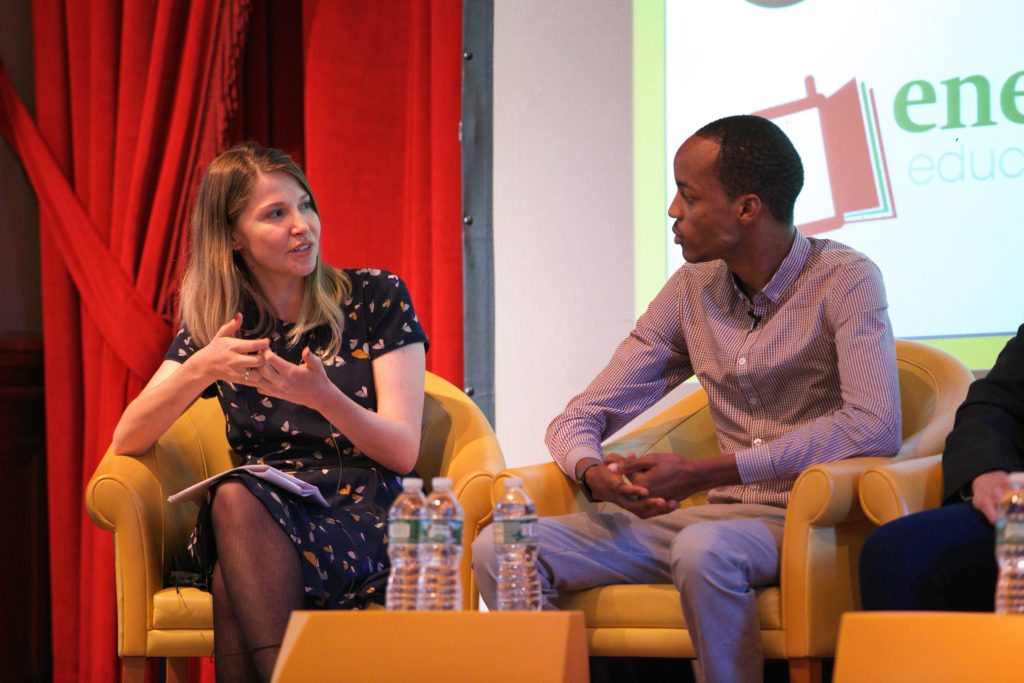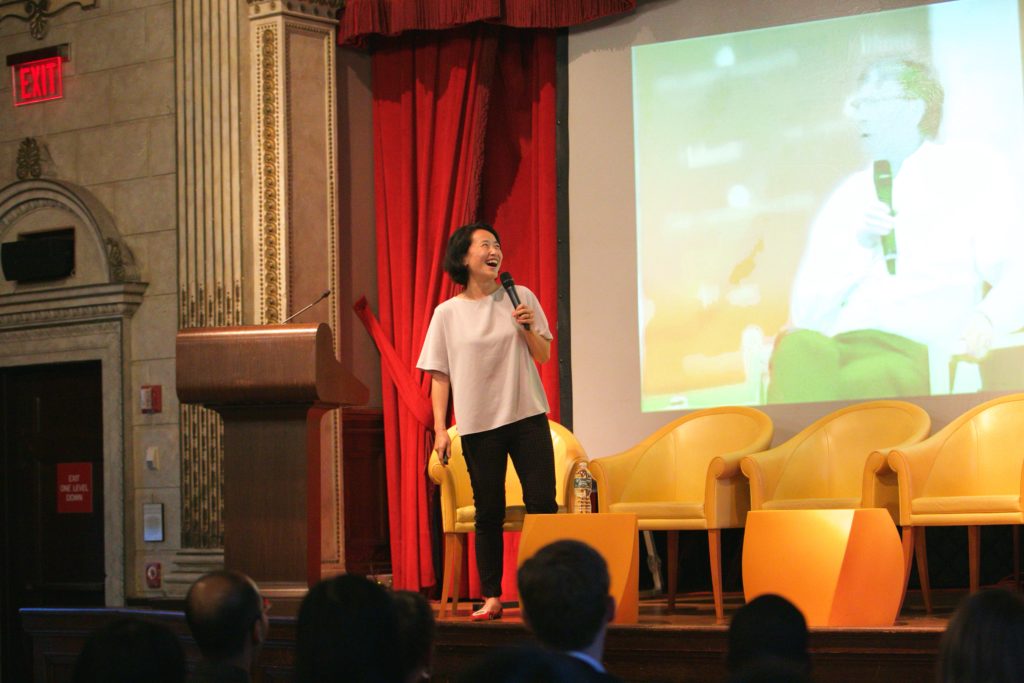At Democratizing Education: The Future of Global EdTech, 200 students, faculty, and education industry experts enthusiastically engaged with international perspectives on the challenges and opportunities of educating the planet. The first event of a seven-month-long initiative for EdTech at Columbia, championed by Columbia Entrepreneurship and SIPA Dean Merit Janow and spearheaded Sarah Holloway, Professor at SIPA and Director, Global Ed Tech Initiative at the Center for Development Economics and Policy (CDEP), Democratizing Education’s sizeable crowd drew from across the Columbia and Teachers College campuses. The evening demonstrated the Columbia community’s deep interest and dedication to the future of innovation in education.

Sponsored by Fundação Lemann and the Nasdaq Educational Foundation, the event was hosted by the Columbia School of International and Public Affairs, their Center for Development Economics and Policy, and Columbia Entrepreneurship, Innovation, and Design at beautiful Casa Italiana.
Entrepreneurs from four continents discussed how innovative startups and progressive policies are disrupting antiquated school systems. Anna Laura Schmidt, EdTech @ the Lehmann Foundation, brought out each panelist’s unique perspectives on challenges that all educators face, global issues that transcend national borders – including student achievement, supporting administrators and parent engagement. With such diverse constituencies, however, the panelists also highlighted how they seek to bridge the gap in education in their particular target communities:
Addressing Absenteeism in New York
Miriam Altman, Chief Executive Officer and Co-founder Kinvolved, uses technology to improve school attendance in New York City. Kinvolved’s mobile and web app, KiNVO, enables K-12 school staff to access informative attendance data and to engage families through real-time, translated, text messaging.
Improving Student Assessments in India
Pranav Kothari, Domain Architect of Mindspark, has focused on improving Mathematics and Language learning in India through technology-based, personalized, and adaptive learning tool. Pranav is interested in student assessments, educational technology, and the critical need for a Science of Learning as a pre-requisite to ensure students deeply understand the content they are learning.
Widening Access to Education in Africa
Kago Kagichiri, Co-founder and CEO of Eneza Education, has made it his mission to “make over 50 million students across Africa smarter” by creating educational courses for mobile users across the continent. Eneza offers a virtual tutor and teacher’s assistant for students and teachers to access courses and assessments while interacting with live instructors through a mobile phone.
Raising the Bar for Students in Brazil
César Wedemann has been leading QEdu towards the mission of transforming the public education in Brazil through technology and data analysis. QEdu looks to gather data on student learning and produce assessments that help teachers, administrators, and other stakeholders make the best decisions on how to educate students.

Global Scale with Local Flavor Through Khan Academy
Khan Academy has a mission of providing a free, world-class education to anyone, anywhere – a tall order considering that each country presents its own structural, political, and cultural challenges. In her keynote Yin Lu, Vice President of International at Khan Academy, laid out the realities of adapting resources for each country and noted that recognizing local needs and implementing changes in the technology can lead to huge gains in engagement. Something as simple as allowing students to count mangos instead of avocados in a math lesson can improve the user experience and improve the impact of the platform.
Up Next – Columbia’s EdTech Design Challenge
With the support of a diverse Columbia community, the momentum of this EdTech event will continue with Columbia’s EdTech Design Challenge, kicking of this Friday, October 13, with its cohort of 24 Columbia students from 7 schools and 12 Brazilian entrepreneurs. This 7-month initiative will explore deeply entrenched K-12 education problems and culminate in a $25,000 grant for winning EdTech ideas. Read more here.
Video available soon! Return to this page to view.


